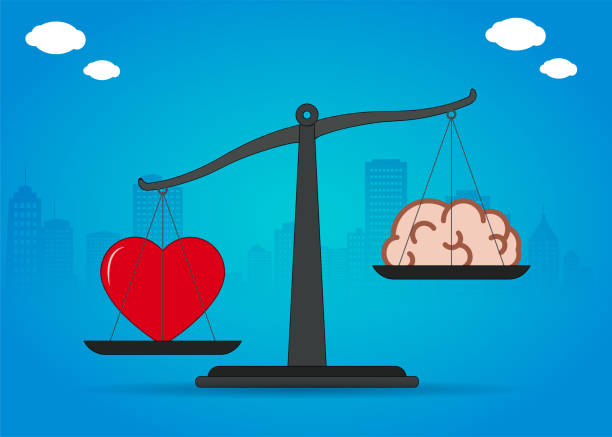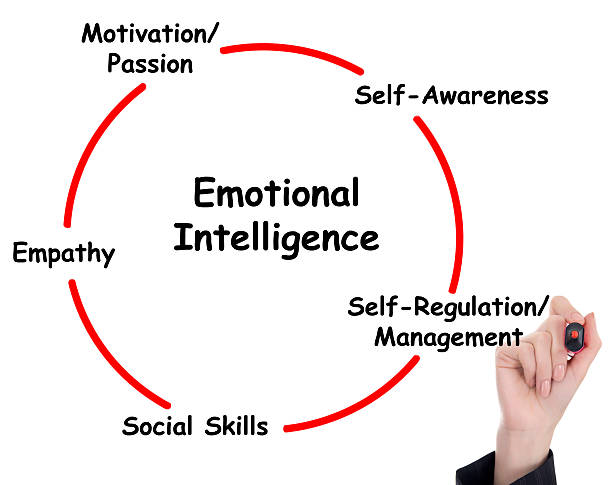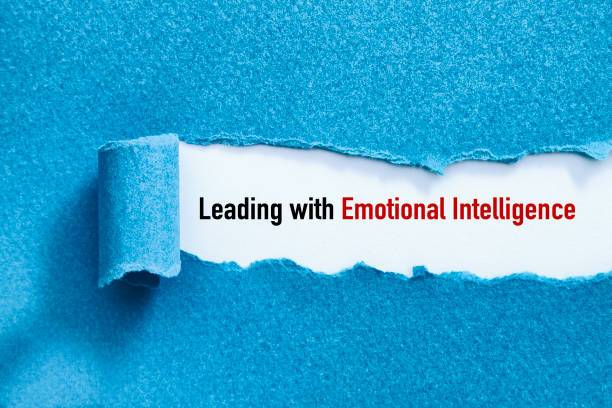EMOTIONAL INTELLIGENCE (EI) : 1 OF BRIGHTEN WAY TO SUCCESS
What’s emotional adaptability/Emotional intelligence (EI)?
Emotional adaptability, frequently simply appertained to as adaptability, is the capability to acclimatize and bounce back from grueling and stressful situations. It involves managing effectively with adversity, trauma, and significant life changes. Adaptability isn’t the absence of emotional torture or difficulty rather, it’s the capacity to face difficulties, learn from them, and crop stronger and more resourceful.
Crucial characteristics and factors of emotional adaptability include
1. Emotional Regulation flexible individuals have a strong capacity to manage their feelings. They aren’t overwhelmed by negative passions but can admit and express them in healthy ways. They can also pierce positive feelings and use them to counterpoise stress.
2. Rigidity Flexibility people are flexible and adaptable. They can acclimate their strategies and actions in response to changing circumstances and lapses. They’re open to new ideas and willing to learn from their guests.
3. Sanguinity and Positive Outlook Resilience frequently involves maintaining a positive outlook indeed in delicate situations. flexible individualities can find stopgap and sanguinity, and they tend to believe in their capability to overcome challenges.
4. Problem-working Chops Adaptability includes effective problem-working chops. Flexible people can identify implicit results to problems, make sound opinions, and take action to address challenges.
5. Social Support Adaptability isn’t solely an individual particularity; it can be fostered and strengthened through social connections. Having a support network of musketeers, family, or other trusted individuals can give emotional support and coffers during delicate times.
6. Tone- Confidence and tone-efficacity Flexible individuals have a sense of tone-confidence and tone-efficacity, meaning they believe in their capability to handle adversity. This tone-sureness helps them approach challenges with a sense of capability.
7. Managing Strategies Adaptability involves the use of healthy managing strategies to manage stress and adversity. This can include seeking help when demanded, rehearsing tone- care, and using relaxation ways.
8. Sense of Purpose Flexible people frequently have a strong sense of purpose or meaning in their lives. This overarching sense of direction can give provocation and a reason to persist through difficulties.
9. Growth Mindset Adaptability is associated with having a growth mindset. Individuals with a growth mindset believe that they can develop and ameliorate their capacities through trouble and literacy, indeed in the face of lapses.
10. Emotional mindfulness flexible individualities are emotionally apprehensive. They can fete and understand their feelings and those of others, which contributes to effective communication and empathy.
Why are adaptability maturity and emotional intelligence important?
Adaptability, maturity, and emotional intelligence are essential attributes that contribute to a person’s overall well-being and success in colorful aspects of life. This is why each of these rates is important
Adaptability
- Managing with Adversity Resilience is pivotal for managing adversity and stress. Life is full of challenges, lapses, and unanticipated events. flexible individualities can bounce back from these difficulties, acclimatize to change, and maintain their internal and emotional well-being.
- Mental Health Resilience is explosively associated with good internal health. It helps individuals manage anxiety, depression, and other internal health issues by furnishing the tools to navigate delicate feelings and situations.
- Physical Health Resilience is linked to better physical health issues. Stress and adversity can hurt the body, but flexible individuals are better equipped to manage these goods.
- Connections Resilience can ameliorate connections by enabling individuals to handle conflicts, communicate effectively, and give support to others in times of need.
- Professional Success Resilience is precious in the plant. It helps individuals acclimatize to changing work conditions, recover from lapses, and maintain a positive station. flexible workers are frequently more productive and more at problem-working.
Maturity
- Effective Decision-Making Maturity is associated with better decision- timber. Mature individuals tend to consider long-term consequences, seek advice when necessary, and make rational choices grounded on values and principles.
- Conflict Resolution Maturity helps in resolving conflicts peacefully and constructively. Mature individuals are less likely to reply impulsively and more likely to communicate and compromise effectively in conflicts.
- Interpersonal connections Maturity enhances the quality of connections. It enables individuals to communicate openly, show empathy and understanding, and maintain healthy boundaries.
- Leadership Maturity is largely valued in leadership places. Mature leaders are generally more effective at managing brigades, fostering collaboration, and furnishing steady guidance during grueling times.
- Tone- Reflection and Growth Maturity involves tone reflection and a commitment to particular growth. Mature individuals are more likely to learn from their gests and continuously ameliorate themselves.
Emotional Intelligence
- Tone- Tone-Tonemindfulness Emotional intelligence involves tone-mindfulness, which is the capability to fete and understand your feelings. This tone– mindfulness is pivotal for managing emotional responses, making better opinions, and developing healthy connections.
- Empathy Emotional intelligence ( EI) includes empathy, the capability to understand and be sensitive to the feelings of others. Empathy promotes effective communication, cooperation, and the development of strong interpersonal bonds.
- Relationship Management Emotional intelligence ( EI) helps in managing connections by perfecting communication, conflict resolution, and collaboration. It also fosters positive and probative relations with others. Read my Article on Cultural Understanding.
- Stress operation EI equips individuals with the chops to manage stress and regulate their feelings effectively. This is vital for maintaining internal and emotional well-being.
- Effective Leadership EI is frequently considered a crucial trait of successful leaders. Leaders with high emotional intelligence can inspire and motivate their brigades, handle complex situations, and make a positive organizational culture.

How do you become flexible?
• Learn to relax.
• Practice allowed mindfulness.
• Edit your outlook.
• Learn from your miscalculations and failures.
• Choose your response.
• Maintain perspective.
• Set yourself some pretensions.
• Make your tone- confident.
What are the benefits of emotional adaptability?
1. Emotional adaptability offers multitudinous benefits that appreciatively impact an existent’s internal, emotional, and physical well-being, as well as their overall quality of life. These are some of the crucial benefits of emotional adaptability
2. Stress Reduction Flexible individualities are more at managing stress and bouncing back from adversity. They’ve managing strategies and chops that help them navigate grueling situations with lesser ease.
3. Bettered Mental Health Emotional adaptability is associated with better internal health issues. flexible individualities are less prone to anxiety, depression, and other internal health issues. They can regulate their feelings and maintain a positive outlook.
4. Enhanced Emotional Regulation Adaptability includes the capability to regulate and manage feelings effectively. This skill leads to emotional balance and helps individuals avoid getting overwhelmed by negative feelings.
5. Increased tone- Confidence flexible people tend to have advanced tone- confidence and tone- regard. They believe in their capability to handle life’s challenges and are less likely to misdoubt themselves.
6. Positive connections Resilience improves interpersonal connections. flexible individualities are more able to understand and empathize with others, leading to healthier and further harmonious connections.
7. More Problemworking Chops flexible people are professed at relating results to problems. They can approach challenges with a sense of sanguinity and the capability to produce effective strategies.
8. Sanguinity and Positive Outlook Resilience frequently leads to a more positive outlook on life. flexible individuals tend to see openings in adversity and have a hopeful perspective.
9. Physical Health Benefits Adaptability is linked to better physical health. It can lead to lower situations of stress hormones, bettered vulnerable function, and better overall health issues.
10. Rigidity and flexible individualities are adaptable and flexible. They can acclimate to changing circumstances and bounce back from lapses, which is a precious skill in a fast-paced world.
11. Advanced Life Satisfaction Adaptability contributes to lesser life satisfaction. flexible individualities tend to find further joy and fulfillment in their lives, indeed in the face of challenges.
12. Growth and Learning Adaptability enables particular growth and development. It encourages individuals to learn from their gests and turn lapses into openings for tone enhancement.
13. Enhanced Leadership Chops Resilience is a precious quality in leadership places. flexible leaders are better equipped to handle queries, inspire their brigades, and maintain a positive organizational culture.
14. Increased Personal and Professional Success Resilience is associated with success in both particular and professional life. flexible individualities are frequently more productive, think-acquainted, and better at problem-working.
15. Reduced Cerebral torture flexible individualities witness lower cerebral torture in the face of adversity. They’re less likely to feel overwhelmed or helpless in challenging situations.
16. Emotional Well-Being Above all, emotional adaptability contributes to overall emotional well-being. It helps individuals navigate the ups and campo of life with lesser ease and maintain a sense of equilibrium.
Why is Emotional intelligence ( EI) essential?
Emotional intelligence( EI) is essential for several reasons, as it plays a pivotal part in particular professional success, effective communication, connections, and overall well-being. Then are some crucial reasons why emotional intelligence is essential
1. Tone-mindfulness Emotional intelligence ( EI) involves tone-mindfulness, which is the capability to fete and understand one’s feelings, moods, and responses. tone- mindfulness is the foundation of emotional intelligence and is essential for particular growth and development.
2. Emotion Regulation Emotional intelligence ( EI) helps individuals regulate their feelings effectively. This means managing negative feelings, like wrathfulness or stress, and being suitable to shift one’s mood and feelings healthily.
3. Empathy Emotional intelligence ( EI) includes the capacity for empathy, which is the capability to understand and be sensitive to the feelings and perspectives of others. Empathy fosters better interpersonal connections, cooperation, and the capability to connect with others in an emotional position.
4. Effective Communication Emotional intelligence ( EI) contributes to effective communication by helping individuals feel and respond to the emotional cues of others. This skill enhances conflict resolution, active listening, and the capability to convey dispatches with lesser clarity and impact.
5. Relationship Management Emotional intelligence involves managing connections adroitly. individualities with high EI are more equipped to navigate conflicts, make strong and meaningful connections, and inspire trust and cooperation in their connections.
6. Conflict Resolution Emotional intelligence ( EI) is pivotal for resolving conflicts peacefully and constructively. It allows individuals to stay calm, express themselves assertively, and find mutually respectable results to controversies.
7. Stress operation Emotional intelligence ( EI) helps individuals manage stress and maintain their well-being. By understanding their stress triggers and employing effective management strategies, individuals can reduce the impact of stress on their lives.
8. Personal and Professional Success Emotional intelligence ( EI) is explosively associated with particular and professional success. It contributes to leadership chops, rigidity, decision- timber, and overall effectiveness in colorful life disciplines.
9. Leadership rates Effective leaders frequently retain high emotional intelligence. They can inspire and motivate their brigades, handle complex situations, and produce positive organizational societies.
10. Adaptability Emotional intelligence ( EI) can enhance adaptability, helping individuals bounce back from lapses and adversity with lesser ease. It equips them with the emotional tools to stay positive and focused in grueling times.
11. Mental Health Emotional intelligence ( EI) is linked to better internal health issues. It can reduce the threat of anxiety and depression and contribute to overall cerebral well-being.
12. Particular Growth Emotional intelligence ( EI) encourages particular growth and development by easing tone-reflection, tone-enhancement, and learning from life gests.
13. Enhanced Decision-Making High Emotional intelligence ( EI) individualities make better opinions by considering both emotional and rational factors. This holistic approach to decision-making leads to better issues.
14. Positive Impact on Others People with emotional intelligence frequently have a positive impact on the people around them. Their capability to empathize, communicate effectively, and make strong connections benefits those they interact with.
15. Cultural and Social Awareness Emotional intelligence ( EI) fosters artistic and social mindfulness, making individualities more sensitive to the requirements, perspectives, and values of different groups, which is especially important in an increasingly globalized world.





2 Comments